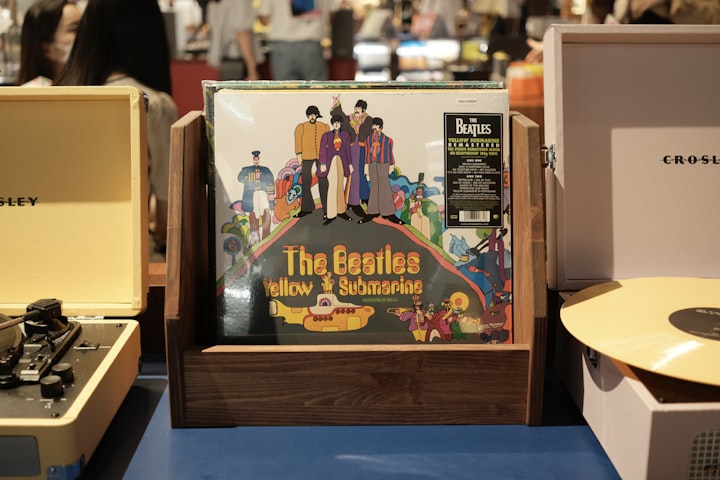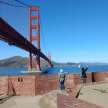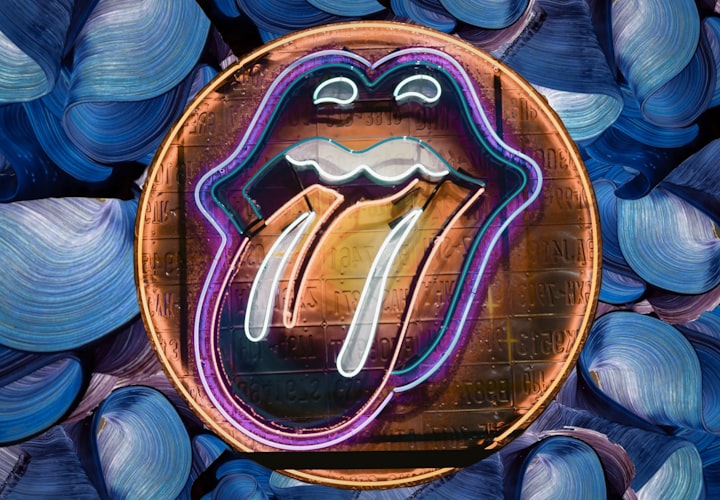
There is no underestimating the seismic change in the cultural values of the young baby boomer set in America, no better way of understanding the sea change that occurred in American youth in the early and mid-1960s than by examining the impact on American music due to the advent of the Beatles, the most influential rock band of all time.
When their music first hit the American continent, spearheading the so-called “British Invasion” of rock and roll, it changed the fabric of American society forever. For the first time ever, American teenagers had their own distinctive musical choices.
And these choices were far different from their parent’s choices of individual crooners like Frank Sinatra, Bing Crosby, and Perry Como. Their popularity even eclipsed the iconic Elvis Presley, the King of American rock and roll.
Elvis was a true innovator because he fused the black blues and gospel artists he listened to as a youth with his own country music background. He then introduced them to the larger white audience as a whole.
The Beatles John Lennon publicly acknowledged that “Without Elvis, there would have been no Beatles.” But Elvis Presley was one of a kind, he had a unique charisma that his flat, one-dimensional imitators like Fabian, Ricky Nelson, and Frankie Avalon, all Elvis look-alikes, lacked.
They were instantly blown away when Beatlemania exploded across the American landscape. The Beatle’s music irrevocably bonded together an entire generation. The future was now. It was hot, it was hip, it was groovy!
Never before in history had a music group benefited from being the subject of such an unprecedented advertising buildup. Already a chart-topping band in England and Europe, their skillful and clever management team had American teenagers literally foaming at the mouth in nerve-wracking anticipation of their arrival.
Rumors of “Beatlemania” in England soon had American teenagers following this new trend here in America long before they first arrived on our shores. The Beatles spearheaded the musical “British Invasion.”
For months before they released their first song for the American market and then made their triumphal tour throughout America, there were frequent and continuous buildups on the American radio stations, all AM radio in those dimly remembered days.
Every few hours, some disc jockey on some popular big beat station, like Murray the K in New York or Dick Biondi in Chicago would announce on their shows “The Beatles Are Coming, The Beatles Are Coming” to a rapt and ever more curious and constantly growing audience of young teenagers, who were whipped into a fever pitch by this clever merchandising manipulation.
Their first American release “I Want to Hold Your Hand” was released here in late 1963 and became a #1 hit song in America in 1964, followed by “She Loves You” which became a #1 hit shortly afterward. On February 7, 1964, on their first American tour, they landed at JFK airport and were greeted by adoring throngs of wildly cheering fans, mostly young teenage girls.
Their cheeky irreverence, wit, and charm in handling the skeptical, cynical, hard-boiled, and mostly unfriendly American media made them even more popular with their young fans. John Lennon, Paul McCartney, George Harrison, and Ringo Starr each had their own legion of individual fans. Everybody had a favorite Beatle. But as a group, they were all loved equally.
When they first appeared on the most influential American television variety show of the day, the very popular, but decidedly mainstream “Ed Sullivan Show,” on February 9, 1964, it was one of the most highly-rated shows of all time. They did 3 shows on Ed Sullivan in all. But after their first brief appearance, America would never be the same.
Their shaggy unbelievably long hair, (in contrast to the crew cuts, or pompadour male haircut standards of the time), these never before seen or dreamed of Beatle haircuts shocked most American adults. Their identical suits, their crooning uptempo harmonizing and infectious smiles, and that bouncy pop beat amazed, energized, captivated, and entranced the youth of America. Things would never be the same again in the music world.
The Beatles also radically changed the very concept of popular music, because they rejected the monopoly of a “Tin Pan Alley” where a stable of writers composed songs for singers.
The Beatles were widely credited as the first successful pop group to compose their own songs. John Lennon and Paul McCartney, with their seemingly endless stream of original, catchy, effervescent bubbly pop songs truly set in motion revolutionary changes in the music publishing business.
They had a boundless sense of energy, and they were working-class lads who had come up the hard way, playing grueling gigs that lasted several hours long 7 nights a week in Germany. They honed their skills for 3 years before they ever became popular in England. It was in Germany they grew bored with just covering other people’s songs and started writing their own.
When they returned to England, they strongly encouraged other bands, like the Rolling Stones, to also write their own material, and they even found time to write popular hit songs for their friends, like Peter & Gordon.
Until then, most English rock bands had been slavish imitators who admired and copied songs by the great American pioneers, extremely talented black rhythm and blues artists like Chuck Berry, Bo Diddley, Muddy Waters, and Little Richard, all mostly underappreciated in America at the time but wildly popular in England.
The Beatles were able to successfully incorporate these early American black rhythm and blues influences with the bouncy, uptempo beats of the jazz, skiffle, and folk music that was popular in England when they were growing up and fused these seemingly disparate styles into their own unique style of music.
Coupled with their raw, grueling exposure night after night in the German clubs, all these influences merged and they created a blend of music that was unique, overwhelming, and irresistible.
And the musical sensibility that grew out of all this early seasoning from such disparate sources came together and rose to take America by storm. Our entire American culture was affected for the better, and things would never change, could never go back again.
The timing of the Beatle's arrival in America was also fortuitous to their ultimate success, coming as it did so quickly after the tragic assassination of President John F. Kennedy in November 1963. Grief-stricken, shocked to the heart American young people were desperate to move on and submerge their grief and sublimate their angst with something new, something positive, something upbeat, and the Beatles were in the right place at the right time.
But Beatlemania was a phenomenon in its own right, and you really had to be there to understand and appreciate the full depth and impact of the whole glorious experience. It was real, it was precious, it was overwhelming in its intensity and scope.
Scenes of adoring, screaming, crying young teenage girls literally swooning at their concerts were commonplace. They were chased through the streets in their limos every time they went outside their hotel rooms by ecstatic throngs of young girls. It seemed everybody loved the Beatles.
Beatlemania swept the nation. It unified and united the youth of America like never before. American youth made a conscious decision to embrace the future, enjoy the music and reject the Establishment values of the time.
Teenagers became a force to be reckoned with. Apolitical at first, the Beatles united and galvanized the youth of America to form their own opinion as a group and eventually rebel against the war in Vietnam and the old order.
An interesting side note to the Beatle's fabulous first impression on America and the hysterical youthful rise of irrepressible Beatlemania in the US was the Beatle's musical and psychological maturation and evolving impact on the American youth movement as a whole as the years went by.
From the tragic shock of the Robert Kennedy and Martin Luther King assassinations, throughout the civil rights movement, and the Vietnam war, the Beatles were there. Through the Beatle's own personal involvement with transcendental meditation with the Indian guru Maharishi Mahesh, the Beatles provided an ever-present soundtrack in the background of every young person’s mind.
As Americans looked inward for answers, the Beatles always managed to stay in touch and grow and mature with their rabidly faithful, loving fans. They stayed loyal to their fans, and their fans stayed loyal to them.
In fact, they produced some of their greatest work in their later years as a studio band with “Sergeant Pepper’s Lonely Hearts Club Band” and the double-disc “The White Album.” Their music has withstood the test of time, and many people who were never even born while the Beatles were a band are also now among their most ardent followers today.
The Beatles always were, and always will be relevant, and nobody can deny them, now or ever, their unique role in American musical history. I am proud to be an original Beatles fan. The Beatles are the most famous and popular rock band of all time.
Yeah, yeah yeah…YEAH!
About the Creator
John Whye
Retired hippie blogger, Bay Area sports enthusiast, Pisces, music lover, songwriter...






Comments
There are no comments for this story
Be the first to respond and start the conversation.